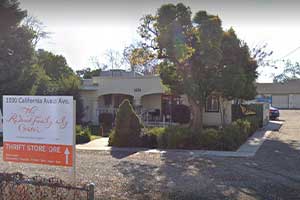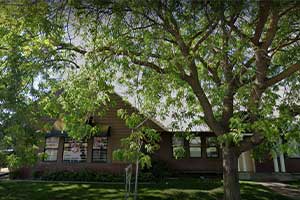Skip To Rehab Listing
However, for individuals struggling with drug and alcohol abuse problems, Ceres can also offer solutions in the form of 25 alcohol and drug rehabilitation programs designed to help patients in their treatment.
Alcohol and Drug Rehab Approaches and Settings
Ceres area residents who have a problem with alcohol and drug abuse have many treatment settings available to them, including the following: outpatient day treatment, long term drug and alcohol rehab facilities, inpatient drug rehab programs, inpatient detoxification programs, short term treatment facilities.
These rehabilitation centers make alcohol and drug rehabilitation easy to obtain, with convenient locations and a number of varying rehabilitation approaches from which to choose, including these listed here: cognitive/behavior therapy, rational emotive behavioral therapy, dual diagnosis drug rehab, dialectical behavior therapy, anger management, substance abuse counseling approach.
Special Programs for Alcohol and Drug Recovery
Substance abuse affects every individual differently. In order to accommodate these differences and offer more tailored treatment, addiction treatment centers in Ceres provide several special programs for clients such as: domestic violence, persons with post-traumatic stress disorder, aftercare/continuing care, transgender or (LGBT) clients, legal advocacy, active duty military.
Clients who believe they may benefit from these special programs can discuss them with the rehab facility to receive support that is meant to maximize the chances of sustained recovery.
Treatment Payment Options
Residents of Ceres come from varied economic situations, making it vital for rehab programs to offer multiple payment options that place recovery within financial reach. Patients can expect to get funding alternatives at nearby alcohol and drug treatment facilities including the following: private pay, private health insurance, payment assistance, sliding fee scale, state corrections or juvenile justice funds, state education funds.
Despite a client's economic situation, money should not be an obstacle to rehab. Alcohol and drug rehabilitation programs guide individuals through their payment options and help them find a way to afford their treatment.
The result of varied rehabilitation centers, methods, programs, and payment options is that treatment for alcohol and drug abuse is accessible for as many people who need it.
Commonly Asked Questions about Addiction and Treatment
Are there racial inequities of the treatment of addictive disorders?
Yes, racial inequities do exist in the treatment of addictive disorders, reflecting systemic disparities that pervade many aspects of healthcare. These inequities can occur across multiple dimensions, including access to treatment, quality of care, and outcomes. Here are some ways in which these inequities manifest:
- Access to treatment: Racial and ethnic minority groups often face barriers to accessing substance use disorder treatment. These barriers can include factors like limited availability of treatment services in certain communities, lack of insurance or underinsurance, economic challenges, and lack of transportation.
- Quality of care: Even when individuals from racial and ethnic minority groups do access treatment, they may not receive the same quality of care as their white counterparts. This could be due to factors such as a lack of culturally competent care, bias or discrimination within the healthcare system, or treatment approaches that do not adequately consider cultural or community-specific factors.
- Treatment outcomes: Racial and ethnic disparities also exist in treatment outcomes for substance use disorders. For example, research has shown that African American and Hispanic individuals often have lower rates of successful completion of substance use disorder treatment programs compared to white individuals.
- Criminal justice involvement: There is a disproportionately higher rate of criminal justice involvement for substance use issues among people of color, particularly among African American and Hispanic populations. This can impact access to quality treatment, as well as long-term outcomes such as employment and social reintegration.
- Research gaps: Historically, much of the research on substance use disorders has primarily involved white participants, leading to a lack of data and understanding about the unique experiences, needs, and treatment responses of individuals from diverse racial and ethnic backgrounds.
What are relationship risk factors for drug and alcohol abuse?
Several relationship factors can increase the risk of developing a drug or alcohol abuse problem. These include:
- Peer Pressure: One of the most significant relationship risk factors, particularly among young people, is pressure from friends or peers to use substances. This can lead to experimental use, which can progress to misuse or addiction.
- Family History of Substance Abuse: Growing up in a family where substance misuse or addiction is present can increase the risk of developing similar problems. This can be due to both genetic factors and the modeling of substance use behaviors.
- Abusive or Dysfunctional Relationships: People who are in abusive or highly stressful relationships may turn to drugs or alcohol as a form of self-medication or escape.
- Enabling Behaviors: If a person's substance use is consistently enabled or excused by their partner, family, or friends, it can perpetuate a pattern of misuse and make it harder for them to recognize or address their problem.
- Isolation or Lack of Social Support: People who feel socially isolated or lack supportive relationships may be more prone to substance abuse. Drugs or alcohol can sometimes be used as a way to cope with feelings of loneliness or disconnection.
- Normalization of Substance Use: In some social or cultural contexts, frequent or heavy substance use may be considered normal or acceptable, which can increase the risk of abuse and addiction.
- Co-dependency: In co-dependent relationships, one person may depend on the other's drug or alcohol problem just as the substance user depends on the substance, creating a cycle that can exacerbate the problem.
How does denial impact drug and alcohol abusers?
"Denial can have a profound impact on individuals struggling with drug and alcohol addiction, significantly affecting their health, relationships, and overall quality of life. Here are some ways in which denial can impact substance abusers:
Prevents Acknowledgment of the Problem: The most immediate impact of denial is that it prevents individuals from recognizing and acknowledging that they have a problem with drugs or alcohol. This can delay them from seeking treatment and starting the recovery process.
Perpetuates Substance Abuse: Denial can contribute to the continued use of substances despite negative consequences. Individuals may downplay the extent of their substance use or its impact on their life, allowing the cycle of addiction to continue.
Deteriorates Health: Denial can lead to a lack of recognition of the serious health consequences related to substance abuse. This can result in worsening physical health, including damage to vital organs, increased risk of disease, and potential overdose.
Strains Relationships: Denial can strain relationships with friends, family, and loved ones. It can cause conflicts, broken trust, and isolation, as the individual may reject concern from others or fail to acknowledge the impact of their substance use on those around them.
Hinders Professional and Academic Progress: Denial can prevent individuals from seeing the negative effects of their addiction on their work or studies. This can lead to job loss, poor academic performance, or loss of career or educational opportunities.
Interferes with Treatment: Even if an individual does seek treatment, denial can interfere with the effectiveness of the intervention. An individual in denial may be resistant to treatment strategies, less likely to engage fully in the recovery process, or more likely to relapse.













